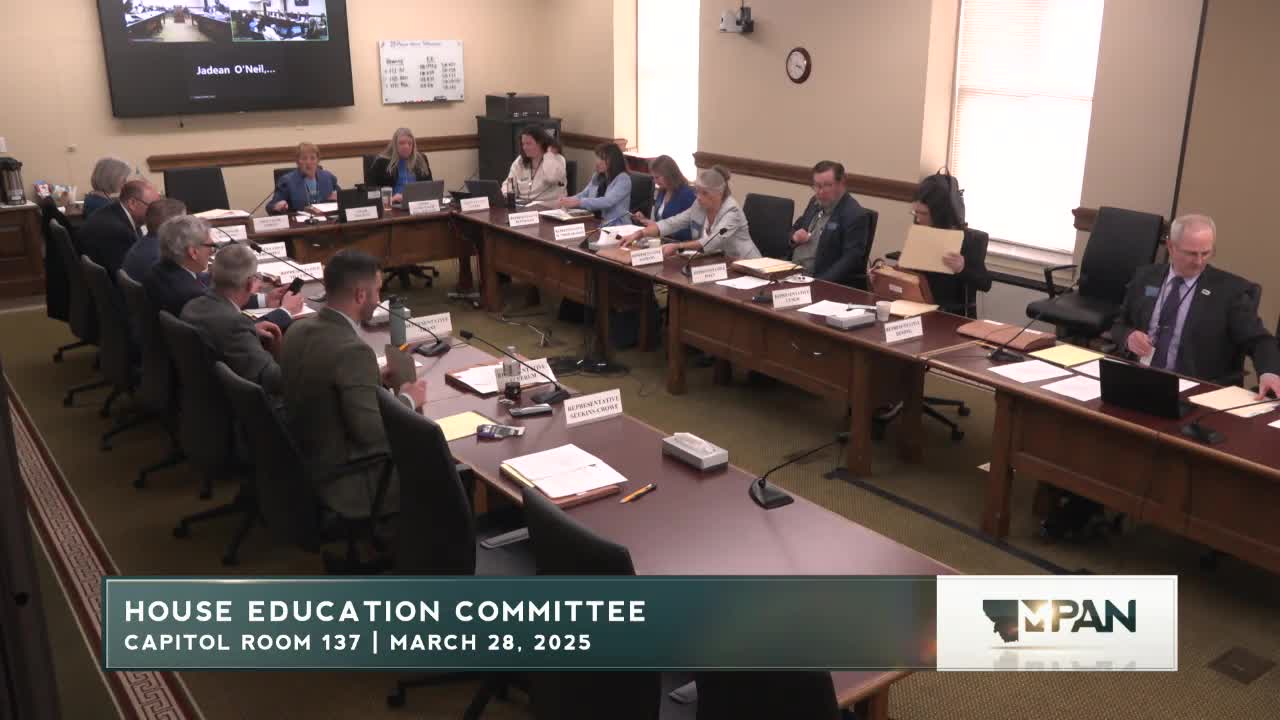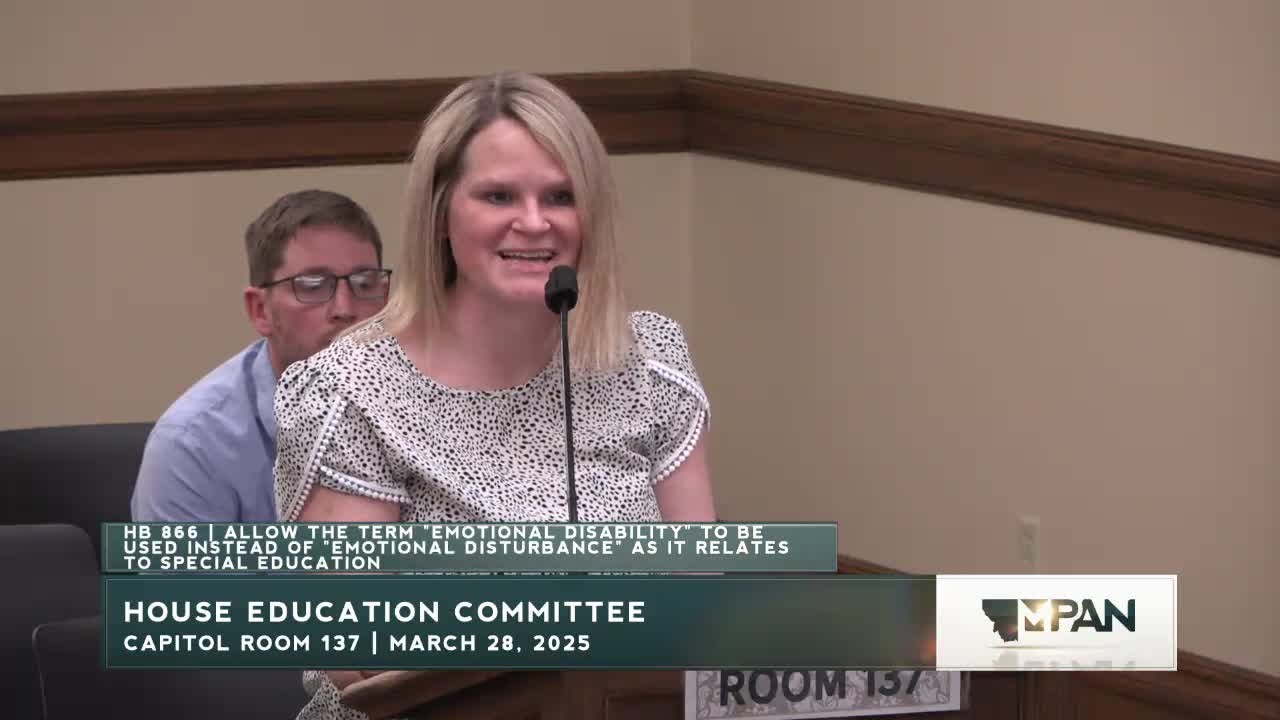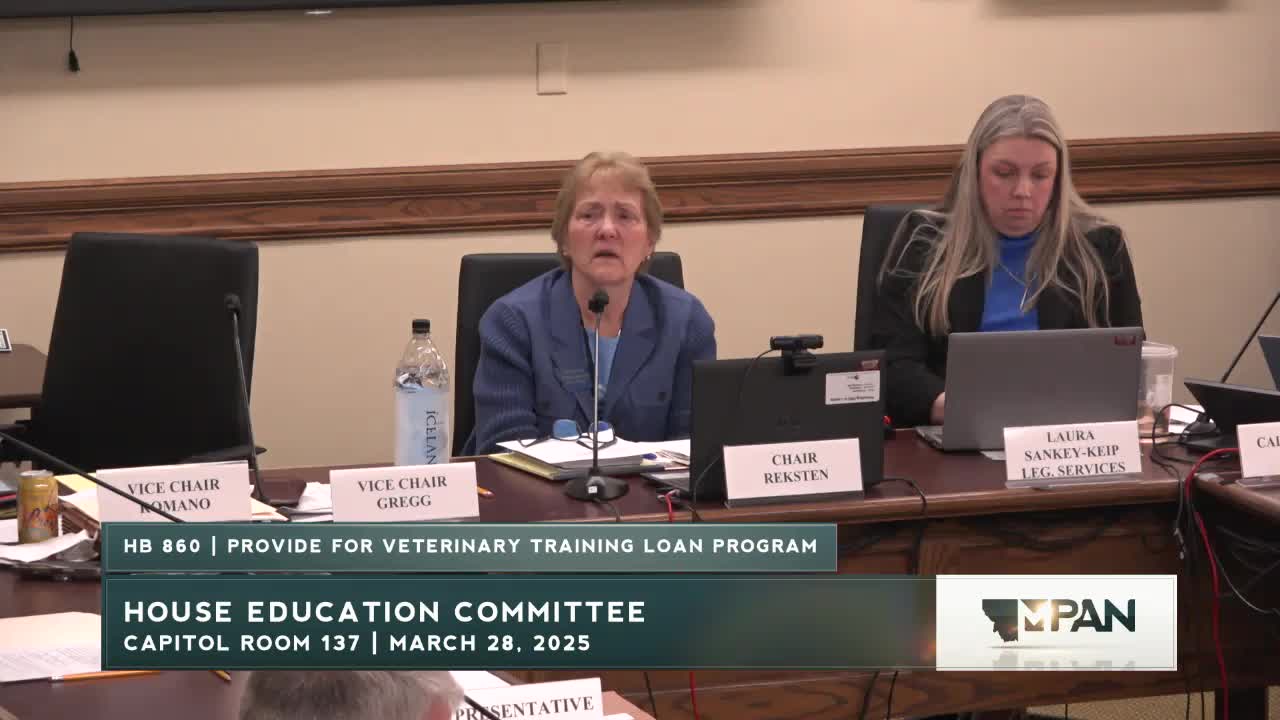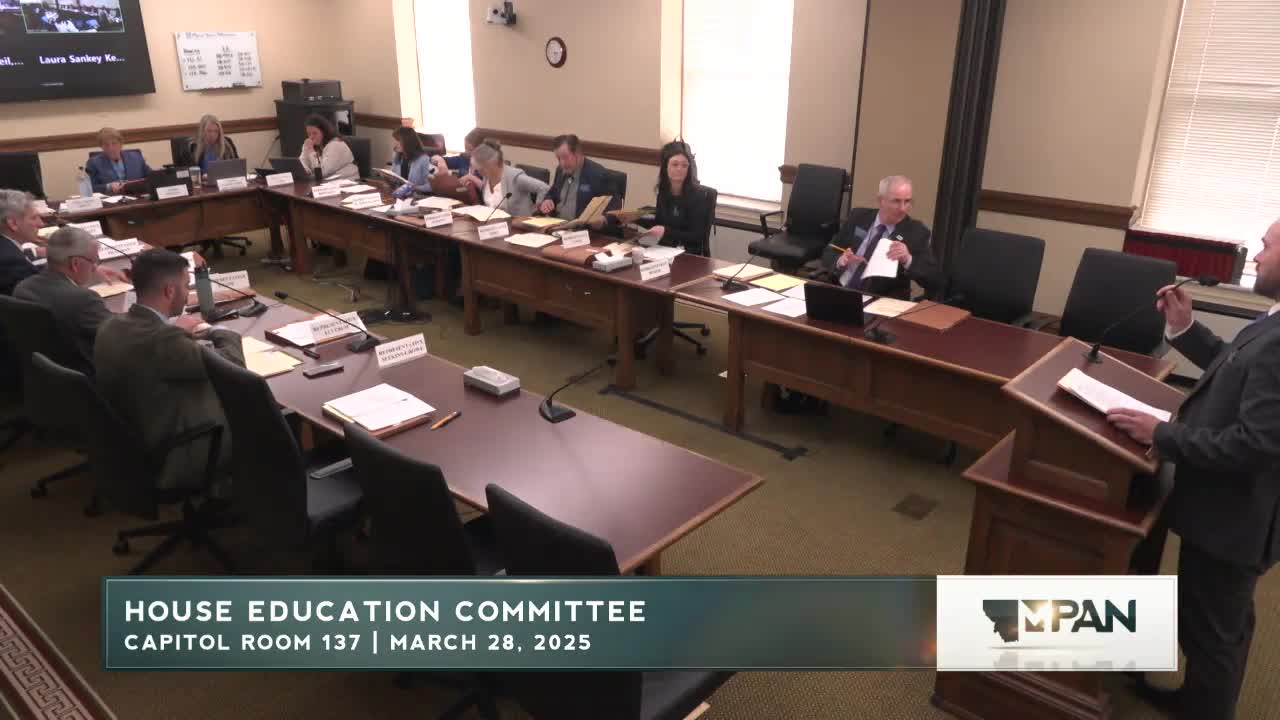Article not found
This article is no longer available. But don't worry—we've gathered other articles that discuss the same topic.

Votes at a glance: key House Education Committee actions and outcomes

House committee unanimously backs resolution recognizing education support professionals (HJR 31)

Committee advances bill allowing use of ‘emotional disability’ in schools instead of ‘emotional disturbance’ (HB 866)

Committee hears broad support for veterinary loan‑repayment bill to address rural shortages (HB 860)

